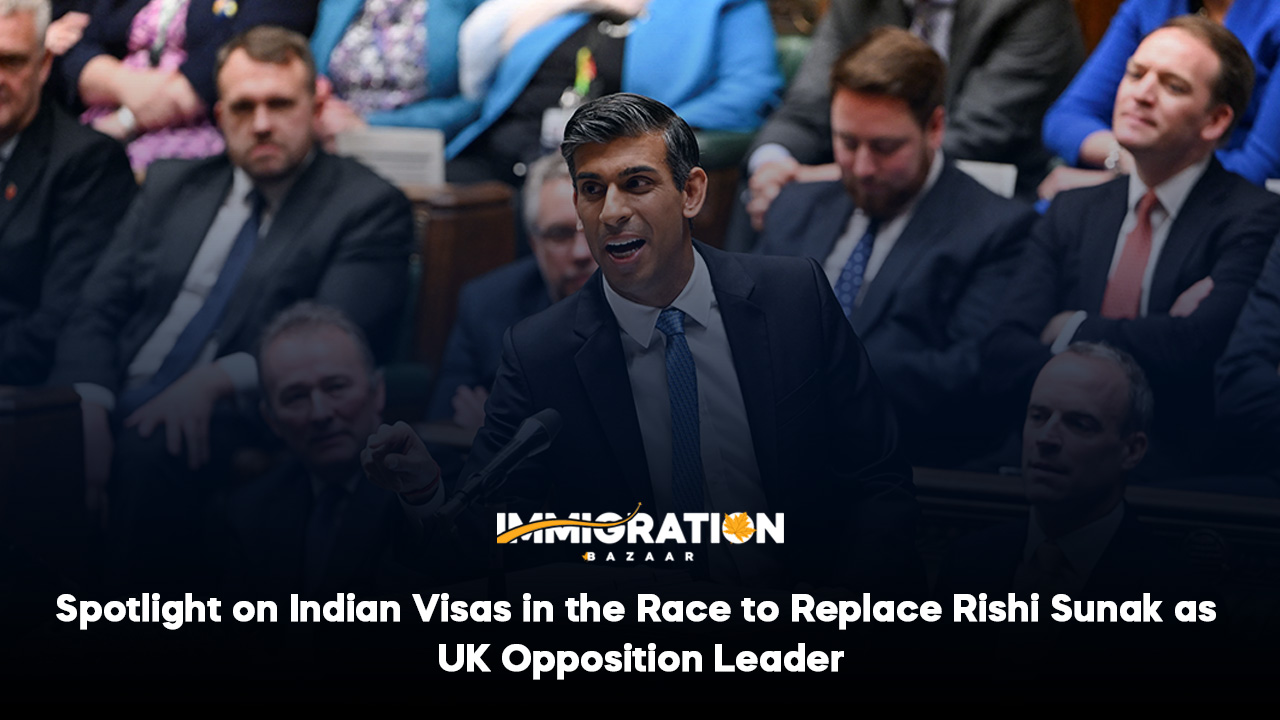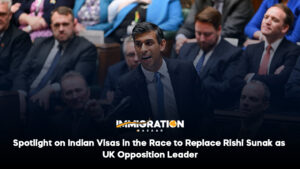Introduction
As the UK gears up for a pivotal leadership transition following Rishi Sunak’s tenure, the topic of immigration, specifically focusing on Indian visas, has emerged as a critical issue within the Conservative Party. Former immigration minister Robert Jenrick has drawn attention to the need for stricter visa policies for Indian nationals amidst the ongoing debates surrounding immigration management in the country. These discussions are taking place against the backdrop of the Conservative Party conference in Birmingham, where various factions within the party are vying to shape the future of UK immigration policy.
-
Immigration as a Central Theme
1.1 The Political Landscape
The backdrop of the Conservative Party conference highlights a growing urgency to address immigration issues, with various party members expressing differing views on how to manage immigration effectively. As the party seeks to redefine its stance to regain public trust, the focus on immigration has become a rallying point for many candidates.
1.2 The Role of Indian Nationals
The Indian community has long been a significant contributor to the UK’s economy and culture, especially in terms of skilled labor. However, concerns about illegal immigration and the number of Indian nationals living in the UK without proper documentation have intensified discussions about visa policies. Jenrick’s comments emphasize the perceived need for stricter controls over immigration from India to address these issues.
-
Robert Jenrick’s Position on Indian Visas
2.1 Emphasizing Stricter Regulations
Robert Jenrick’s advocacy for tougher visa restrictions on Indian nationals is rooted in concerns over illegal immigration. He highlighted the necessity for the UK to adopt a more stringent approach towards countries that allow illegal migration, which he believes could include India.
2.2 Political Implications of His Stance
Jenrick’s position is significant, given the historical context of Indian immigration to the UK. By proposing stricter measures, he aims to align himself with party members who prioritize immigration control, which has resonated with a segment of the electorate. This focus on immigration could be seen as an attempt to solidify his candidacy and gain support within the party.
-
The Impact of Stricter Visa Policies
3.1 Potential Consequences for Indian Nationals
If the Conservative Party were to adopt Jenrick’s proposed visa restrictions, Indian nationals could face increased scrutiny when applying for visas. This may result in a more complex immigration process, making it challenging for prospective students and skilled workers from India to enter the UK.
3.2 Broader Economic Implications
Stricter visa regulations could have broader economic implications for the UK, particularly in sectors heavily reliant on skilled labor from India. The UK’s technology, healthcare, and engineering industries, which benefit from the contributions of Indian professionals, may experience labor shortages if access to these workers is curtailed.
-
Public Sentiment on Immigration
4.1 Growing Concerns
Public sentiment regarding immigration has shifted in recent years, with many citizens expressing concerns about the impacts of immigration on public services, housing, and job availability. This sentiment has fueled political discussions, with candidates like Jenrick advocating for policies that resonate with these concerns.
4.2 The Role of Media and Political Discourse
Media coverage plays a crucial role in shaping public perceptions of immigration. By highlighting statistics related to illegal immigration and potential national security risks, the media can influence public sentiment and create a narrative that supports stricter immigration policies.
-
The Future of Immigration Policy in the UK
5.1 Implications of Political Leadership Changes
As the Conservative Party navigates its leadership transition, the future of immigration policy will be a significant point of contention. The new leader will likely need to balance public sentiment with the economic realities of a labor market reliant on immigrant contributions.
5.2 Potential for Reforms
While stricter immigration policies may be on the table, there is also potential for reforms aimed at creating a more balanced approach to immigration. This could involve improving pathways for skilled workers while ensuring measures are in place to prevent illegal immigration.
-
Conclusion
The spotlight on Indian visas in the context of the Conservative Party’s leadership race signifies a crucial moment in the UK’s immigration discourse. As candidates like Robert Jenrick advocate for stricter regulations, the potential implications for Indian nationals and the broader economy remain significant. The outcomes of these discussions will shape the future of immigration policy in the UK and influence how the country positions itself on the global stage regarding skilled labor and international relations.







